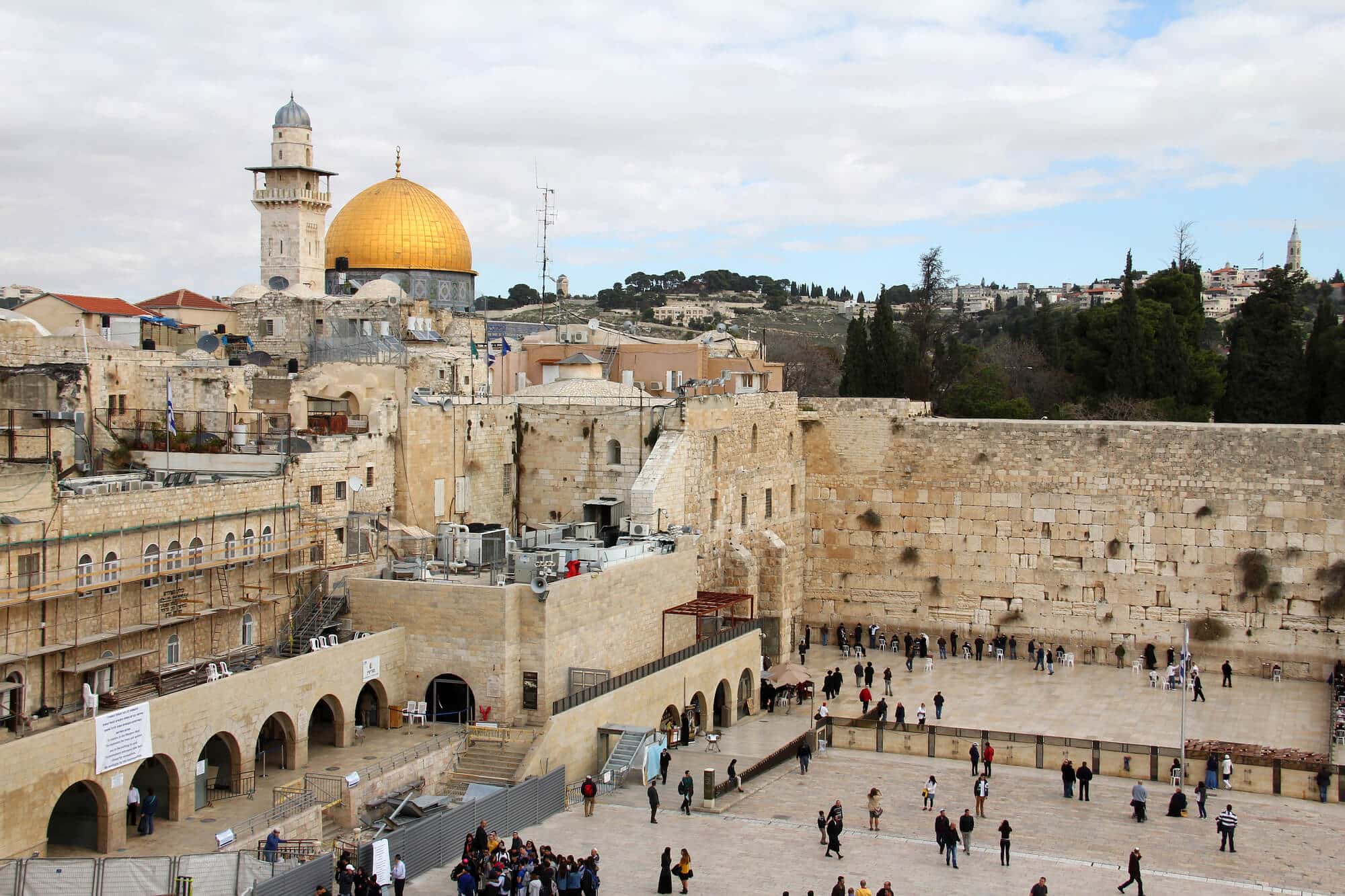Researchers examined the tourist experience in Jerusalem and discovered the moments when the emotional arousal of visitors increases - for better or for worse

Researchers examined the tourist experience in Jerusalem and discovered the moments when the emotional arousal of visitors increases - for better or for worse.
How do tourists feel when they visit different sites? What contributes to their excitement and what hinders them? Tourism is a socio-economic branch that is attributed to the trip, travel, stay and visit of people outside their usual environment for a short time, usually up to a year, for purposes such as vacation, recreation, business, healing and pilgrimage (pilgrimage). It provides sources of employment, such as hotels, restaurants and places of entertainment, and its revenues, mainly from hospitality and transportation, are extremely beneficial to the economic and social prosperity of cities and countries.
What is the question? What do tourists feel at sites such as Mahane Yehuda Market and the Western Wall?
Prof. Noam Shovel from the Department of Geography and the Institute for Urban and Regional Studies at the Hebrew University is an urban geographer who is also involved in tourism. His research focuses on the behavior and feelings of tourists in time and space and so far has been done in countries such as Israel, Denmark, Spain, China, Germany and Italy. According to him, "Today, due to globalization and the increase in the standard of living, more and more people can afford to fly abroad, and therefore tourism has become a huge industry, with economic, social, cultural and ecological significance (among other things, it contributes to the pollution of the environment due to the many flights and trips). However, there is still a lack of information about the tourist's experience and feelings. In our research, we use advanced digital tools (such as a GPS device and sensors attached to the body), in addition to questionnaires, to understand where the tourists visit and what they feel and feel at any given moment. This way we can contribute to improving their experience at the various sites and tourism as a whole. Until now, most studies in the field were based on questionnaires only, but now we understand that there is not always a correlation between the feeling reported in the questionnaire and physiological reactions that indicate emotional arousal."
In their current research, which is still ongoing, and which won a grant from the National Science Foundation, Prof. Shuval and his team are examining the tourist experience at sites in Jerusalem such as Mahane Yehuda Market and the Western Wall. So far, they have conducted several experiments, in each of which about 25 subjects participated - mostly students from Israel and abroad - which contributed to the representation of different religions and cultures in the research. "We tried to learn about the experience of the subjects on these sites and if and how the load on them affects them," explains Prof. Shovel.
To this end, the researchers equipped the subjects with a small GPS device and attached a tiny physiological sensor to their body that measures the electrical conductivity of the skin. These transmitted to the laboratory data on the location of the subjects and their level of emotional arousal. In addition, the subjects filled out questionnaires about their feelings on the website (which included questions such as "how did you feel" and "were you excited and why").
Among other things, it was found that subjects reported in the questionnaires that they were very excited while staying at the Western Wall, but the sensor testified that their level of emotional arousal increased precisely before reaching it, when they looked at it from a distance. In addition, they discovered that as the congestion in the Mahane Yehuda market increased (reached hundreds of people), so did the level of emotional arousal. Although in the questionnaires it was found that this arousal is not actually positive and is more related to mental stress and pressure. In other words, it was discovered that the overcrowding in the market harms the experience of visiting it.
We want to understand what ultimately excites people about the experience. Could it be the expectation and not the stay itself? We still don't know and intend to test it scientifically.
Following this, the researchers intend to investigate the relationship between place, distant view, and emotion - and try to formulate recommendations on the number of visitors who can enter different sites. "We want to understand what ultimately excites people about the experience. Could it be the expectation and not the stay itself? We still don't know and intend to test it scientifically. In addition, we will be able to inform site managers and urban planners about how overtourism affects visitors to various sites and, if necessary, recommend reducing their number. Not dispersing the tourists in time and space can cause them to avoid visits and harm tourism. This is talked about regularly, but so far it has not been quantified and measured", concludes Prof. Shuval.
Life itself:
Noam Shuval. Photo: Bruno Sharvit
Prof. Noam Shuval, 54, married + three children, lives in the Jerusalem area. He did a doctorate at the Hebrew University under the supervision of the late Prof. Arie Shahar (1999 Israel Prize winner in Geography) and a post-doctorate in the Department of Geography at King's College London. Member of the International Academy for Tourism Research and past president of the Israel Geographical Society. In his spare time he likes to read history books ("a field that goes well with geography") and travel in Israel and abroad. Every year he organizes student tours to Barcelona or Berlin ("interesting cities suitable for understanding urban geography").
